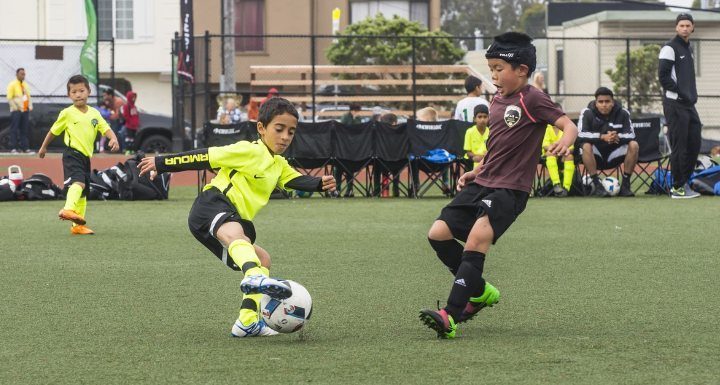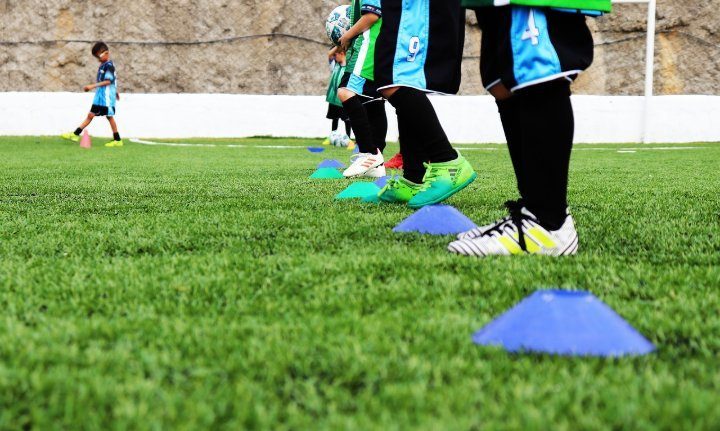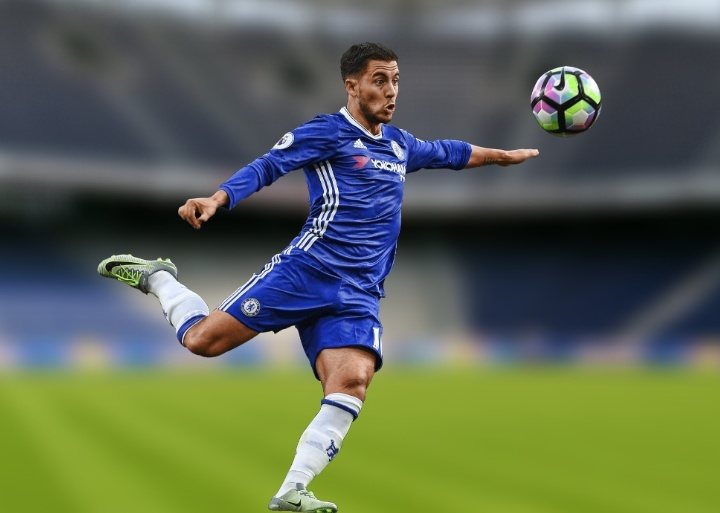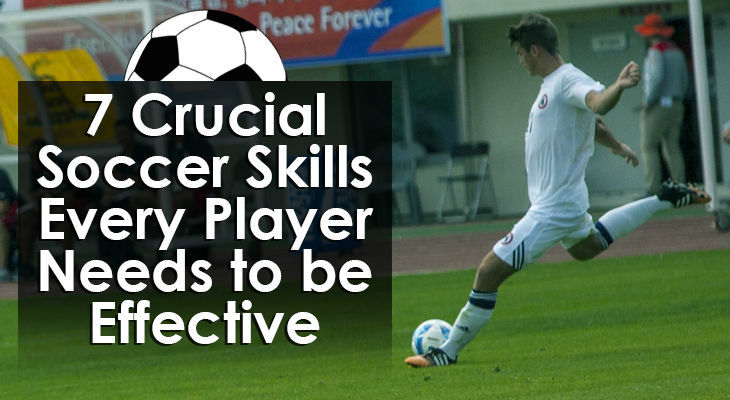7 Crucial Soccer Skills Every Player Needs to be Effective
While each great player has their own unique playing style, attributes, and skillset, there are some crucial soccer skills that every player needs to master.
There are many different skills that youth players and coaches can work on to improve the team both on an individual and collective level, but some skills are more important than others.
Focusing on them will help your players thrive.
Passing the ball with power and precision, for example, is crucial. And no team or player will get very far without learning how to do it.
Let's take a look at seven crucial soccer skills that every player needs to master if they want to be effective and take their game to the next level.
1. Ball Control and First Touch
One of the first skills a player learns when they start playing soccer is how to control the ball.
This is an essential skill to learn, as not being able to control the ball will allow any opposing player to take the ball off you immediately after you gain possession.
As such, you must work on improving ball control and first touch.
That can be with your feet, chest, thigh, etc.
Your first touch must be deft enough to stop the ball in its tracks exactly where you intended – perfectly placed for your next pass or shot.
If not, you can quickly be closed down or miss an opportunity as your opponents swarm around while you struggle to get the ball out from between your feet.
How you receive the ball is an essential part of ball control, and you must learn to guide the ball into space in just one touch.
This takes a considerable amount of skill.
Professionals make it look incredibly simple as they pluck the ball from the sky and accelerate away, all in one swift movement.
Coaches should spend quite a lot of time on the training ground developing each players' first touch and ball control, and fortunately, many drills can hone these skills.

2. Passing – Both Long and Short
No player can ever thrive if they can't get their passing on point.
Just like the skill above, it’s deceptively hard to master this crucial skill.
Although you may be decent at casually stroking the ball around the training pitch, it's far more difficult to get passes right when the pressure and intensity of a game is overwhelming you.
Many factors go into passing the ball accurately.
Players need to take into account the opposition players, the distance, the speed at which their teammate is running, and a bunch of other essential things that will influence the pass.
This takes a lot of skill to do.
And in 99% of scenarios when players are working this out, there’s an opponent or two breathing down their neck which means they only have a split-second to react.
It’s a good idea to work on passing the ball over both short and long distances as you'll need to do both in almost every game.
3. Positioning and Spatial Awareness
Positioning is another essential soccer skill to learn.
Not only will you gain time and space on the pitch, but it will also help you to be in the right place at the right time - every time.
Any player who is constantly out of position is going to impact the team negatively. Gaps will open up all over the pitch, and teammates will be forced to cover the area that was left open.
Smart opposition will always exploit a player with poor positioning.
Knowing which positions to take up is essential whether you’re an attacker, midfielder, defender, or goalkeeper. And each position has many responsibilities attached to it.
What is required of each position will depend on what formation and tactics your team is using.
So knowing when and where to be in your team's system will help you to develop your tactical knowledge and game intelligence.
Spatial awareness is a critical aspect of positioning.
You should always know where your nearest opponent is, as this impacts how you receive and control the ball since you’ll know how much time you have to get rid of the ball.
As you will undoubtedly have noticed by now, all of these crucial soccer skills are tied together.
So you ideally want to work on them in tandem as they all impact one another.
4. Stamina and Fitness
At all levels of the game, soccer players need to be fit enough to get around the pitch.
So while it’s perhaps not a skill per se, you need to work on your stamina if you hope to develop your other skills and continue improving as a player.
If you’re panting around the pitch, always arriving a second late behind your opponent, you’re not going to be playing your best soccer.
And then all of the other skills we’ve looked at so far will be negatively impacted by poor fitness.
Your concentration and focus also dips if you’re tired.
A player who is in peak fitness is bursting with energy and ready to execute their soccer skills when it comes to training or game time.

5. Dribbling the Ball While Running
You don't have to be anywhere near as good as Messi…
But when it comes to dribbling the soccer ball, having at least some idea of how to get out of a sticky situation is always a good idea.
While dribbling the ball appears to be quite a simple skill, the additional act of running at the same time can make it 100x more complicated.
Players need to master how to push the ball ahead while not allowing it to get too far away or stay too close to their feet.
Spatial awareness and a clean first touch comes into play here, as players will need to know how much time and space they have while dribbling.
This skill will help you get around opponents, increase the time you have before needing to shoot or pass, and will keep everyone guessing what your next move will be.
6. Shooting
If you don't shoot, you’ll never score.
Learning how to strike the ball with power and precision will not only improve your overall potential in soccer, but will also help you to get on the scoresheet and push your team to victory.
Every training session should spend at least some time working on shooting.
After all, putting the ball in the back of the net is the only way to win a match.
Since there are many ways to shoot the ball (off a volley, free kick, shot on the move, etc), it’s a difficult skill to master. Which is why the best goal-scorers in the world are so highly sought after.
There are several different shooting drills you can use to work on this skill, just make sure to practice with both feet so that you can always slot the ball home.

7. Discipline and Attitude
While mastering all of the above skills are crucial to reaching your potential and improving as a player, you won't learn how to do them unless you put in the time and effort.
For that to happen, you must be disciplined and approach every training session highly motivated to do your best and improve.
You must be prepared to learn from everyone and have the right attitude.
When things aren’t working out for you right away, you need to buckle down, keep at it, and trust that you’ll figure it out eventually.
It’s only with discipline and a positive, hard-working attitude that you can hope to master the soccer skills we’ve looked at in this blog post.
Conclusion:
All of the seven crucial soccer skills we’ve just looked at are very much tied together.
And if you can manage to master all of them, you'll certainly take your game to the next level and be the best possible player you can be.
While there are an endless array of different soccer skills and tricks you can learn to set yourself apart from the rest, mastery of these seven skills will make you a formidable player to compete against.
But as with everything in life, no improvements will come without discipline and hard work.
If you put in the time and effort, you will achieve your goals.
Good luck!

